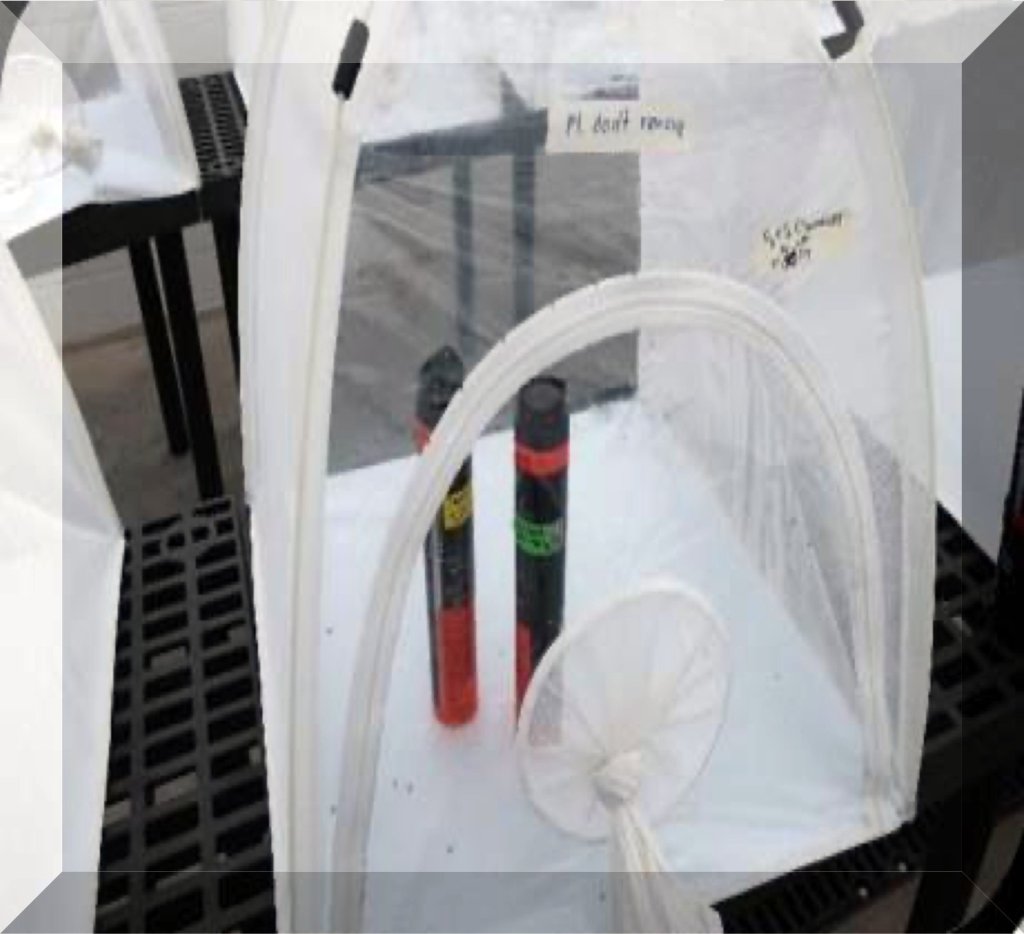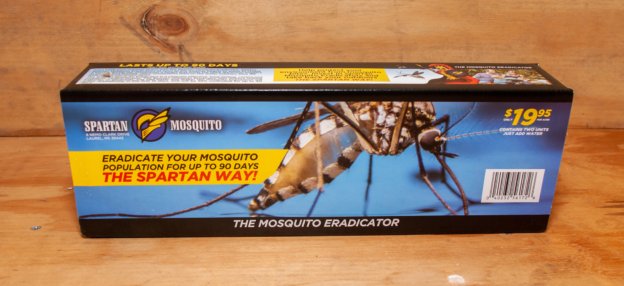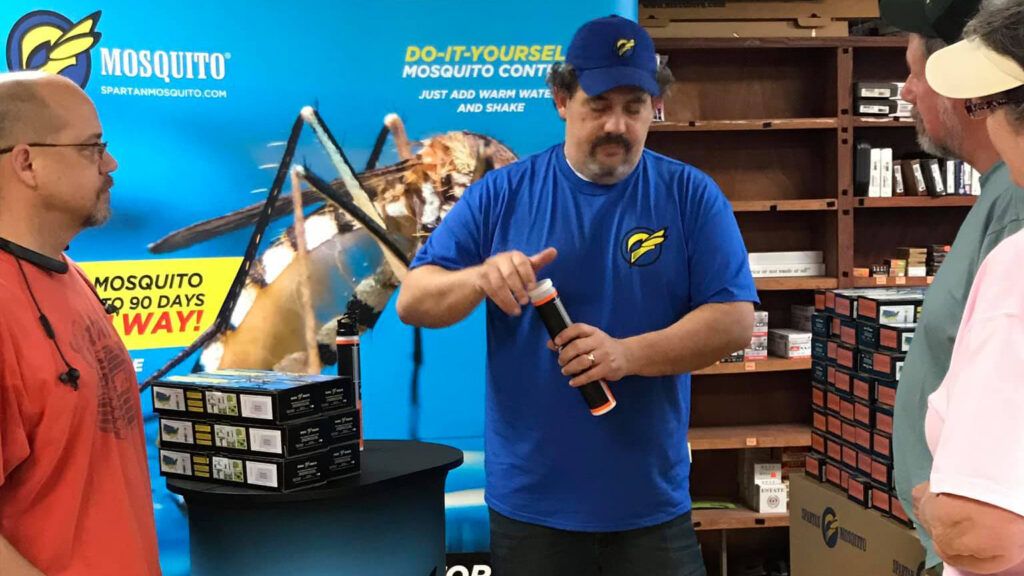Research conducted in Florida found no evidence that Spartan Mosquito Eradicatiors are effective mosquito-control devices. Below is my reconstruction of the two experiments they conducted. One was in the laboratory, one was outside.
Laboratory experiment
Below is a rough reconstruction of the laboratory experiment they conducted. In each of the cages (BugDorm-2120), 100 male and 100 female tiger mosquitoes (Aedes albopictus) were released, then monitored for mortality at 24, 48, and 72 hours.
Here is a photograph of one of the choice cages:

Below are the cumulative mortality data for the three cages. The Spartan Mosquito Eradicator filled with the provided packet ingredients (treatment) did not result in higher mortality. I.e., there was no evidence the device killed mosquitoes under laboratory conditions.
Field experiment
The researchers also conducted a field experiment using two sites that had large populations of tiger mosquitoes (because of the presence of tires). At each site they deployed five tubes (separated by 4 m), switching whether the tubes were “treatment” or “control” tubes every 2 weeks. A BG-Sentinel trap (without carbon dioxide) was used to quantify mosquito numbers every week.
Below are the weekly numbers of mosquitoes caught in the BG Sentinel traps. Results: there was no evidence that presence of treatment tubes (filled as per company guidelines) reduced the numbers of mosquitoes at the sites.

Conclusions
The scientists concluded that “Both laboratory and field components of our study show that the Spartan Mosquito Eradicator is not effective in reducing abundance of Ae. albopictus.” They speculate that the contents do not attract mosquitoes and that the holes on the device (~3 mm) are too small for mosquitoes to easily reach the fluid inside. They also highlight the need for an experiment to evaluate whether the active ingredient (1% sodium chloride) kills adult mosquitoes. I.e., even if mosquitoes were attracted to Spartan Mosquito Eradicators and could easily get inside, the salt might not be lethal.
Aryaprema, V.S., E. Zeszutko, C. Cunningham, E.I.M. Khater, and R.-D. Xue. 2020. Efficacy of commercial toxic sugar bait station (ATSB) against Aedes albopictus. J. Florida Mosquito Control Association 67: 80-83. PDF
Update: the salt experiment has been conducted. And the result is that salt does not kill mosquitoes.
All of these results are no surprise to anyone. Please see my 2019 review of the Spartan Mosquito Eradicator for details. I also reviewed the Spartan Mosquito Pro Tech, the company’s newest tube. It is just as effective. I.e., they are equally ineffective.





